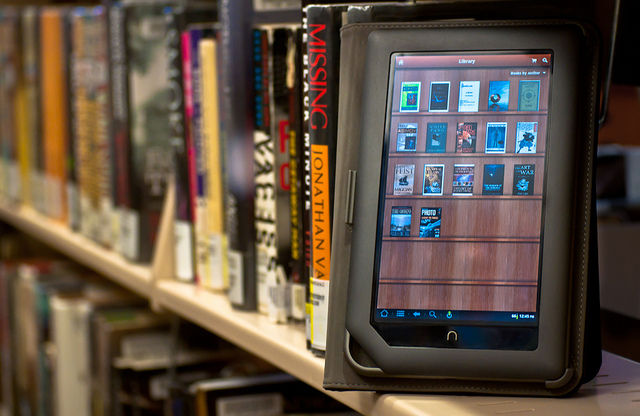In preparing for a five-year president‘s advisory review of the university library, we examined how users drew on the library collection and how they wanted to use information. We graphed the ways faculty and students found and used information. In the library, circulation, interlibrary loan, and documented use of electronic resources provided one snapshot on the different ways that faculty and students used information.
Drawing on a 2002 study, we extrapolated how much information for scholarly and research purposes were drawn from the free web. For the advisory board review in late 2010, we again recreated this information with interesting results showing a larger web (no surprise) and an increased use of electronic information and free web, a decline in circulation and a small rise in interlibrary loan. Based on use patterns—a decline in circulation and an overall increase in the use of electronic resources—questions about staffing service and operation services and the tasks in different library staff positions need to be examined in order to understand.
In the summer of 2011, we began to explore these changes in order to understand the practical and operational ramifications of this change in information use. One line of inquiry was to reexamine the data collection process and collected data. Monographic circulation was extrapolated from all circulation data so that this type of use could be examined in more depth. Was the decline in circulation as dramatic as first thought?
A second initiative—to put selection in the hands of users was initiated to test and understand user behavior. Thus in fall 2011, a demand driven monographic acquisitions pilot project in computer science and electrical engineering was begun.
This paper will report on the outcomes of those initiatives and initial steps taken to align collections and services.
Ms. Linke holds the rank of Principal Librarian and is Associate Dean of University Libraries at Carnegie Mellon University in Pittsburgh, PA, where she has responsibility for library-wide reference, public and user services, technical services and collection development including the CMU library in Doha, Qatar. Ms. Linke is past President of the Association of College and Research Libraries (ACRL). Currently she is the chair of the ACRL conference that will be held in Indianapolis, Indiana in 2013. Professional areas of interest include digital libraries; digital library management and collection issues; copyright, intellectual property and scholarly communication; and access to information and research resources.
#m441 #iatul2012 University Libraries at Carnegie Mellon University seems to have embarked on ops efficiency & strategic rationalisation
— Ivan Chew (@ramblinglib) June 7, 2012
#m441 #iatul2012 more people use free web content for scholarly purposes twitter.com/Yboon1/status/…
— Yboon (@Yboon1) June 7, 2012
#m441 #iatul2012 remove Science & Engg reference desk, reduce ref desk hours at other libraries
— Yboon (@Yboon1) June 7, 2012
#m441 #iatul2012 those students in arts school don’t get up that early
— IATUL 2012 (@iatul2012) June 7, 2012
#m441 #iatul2012 Carnegie Mellon University moved ref svc to cir desk for their smaller libraries twitter.com/ramblinglib/st…
— Ivan Chew (@ramblinglib) June 7, 2012
#m441 #iatul2012 we three the desk out in the science and engineering library. All the enquiries came through the circulation desk
— IATUL 2012 (@iatul2012) June 7, 2012
#M441 #iatul2012 Carnegie Mellon University responded with a “demand driven acquisition”; even that they r still investigating
— Ivan Chew (@ramblinglib) June 7, 2012
#m441 #iatul2012 responding to trends – need to rethink reference desk service
— IATUL 2012 (@iatul2012) June 7, 2012
#M441 #iatul2012 Carnegie Mellon University Library: decline in usage of print inspite of increase in print budget
— Ivan Chew (@ramblinglib) June 7, 2012
#m441 #iatul2012 cafe and long lib opening hrs drive visitorship
— Yboon (@Yboon1) June 7, 2012
#M441 #iatul2012 Carnegie Mellon University (Pittsburgh): increased library visits bec they added cafe & longer hrs (not collections)
— Ivan Chew (@ramblinglib) June 7, 2012



No reference desk at Science & Engineeing library – start at Circulation Desk. Ref desk combine with global communicatin service (what students need to present, write, etc) – collaborative commons.